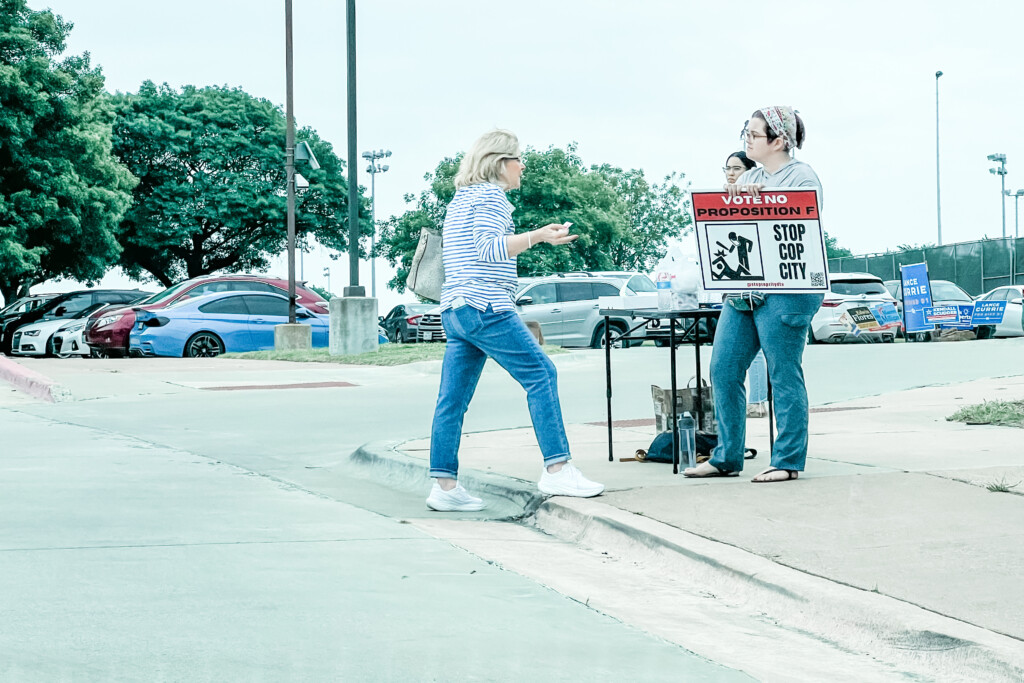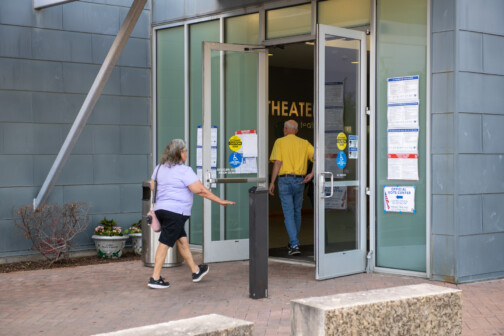It was a very late night (or an early morning) for bleary-eyed Dallas poll watchers Saturday. By 10 p.m., less than 4 percent of the city’s vote centers had reported returns.
But it almost didn’t matter. The main event—10 bond propositions totaling $1.25 billion—had such a commanding lead after early voting that bond proponents were already claiming victory well before the 10 p.m. newscasts started.
The people of Dallas said YES to public safety, YES to the basics, and YES to quality neighborhood parks tonight by supporting the 2024 Dallas Bond package. Thank you, Dallas, for supporting this meaningful investment in the future of our city! pic.twitter.com/zKiysnqsqN
— Mayor Eric L. Johnson (@Johnson4Dallas) May 5, 2024
By midnight, every bond proposition had at least 70 percent of the vote among city voters within Dallas County. Some had upwards of 80 percent. Dallas voters living in Denton and Collin counties approved every proposition as well, but they weren’t as bullish on propositions that addressed arts and cultural facilities, economic development, and housing.
The bond package also had its detractors. The group Stop Cop City Dallas Coalition opposed Proposition F—specifically, the $50 million allocation for the new police academy. (They named their initiative after the broad push in Atlanta to stop the development of a police training facility in a forest there.) But voters within Dallas County approved the measure by at least 78 percent.
“Our communities and neighborhoods do not need more police officers, and we understand investment in community care and not cops will KEEP US SAFE,” the group wrote in an open letter in March.
Council Member Cara Mendelsohn broke with most of her colleagues and their full-throated support of the entire bond package. She waged a vocal campaign against propositions C and H, penning op-eds in at least two publications and spelling out her opposition on her webpage. She argued that the debt accrued in bonds was a dicey proposition for the city.
Was today payday? Maybe it was 5/1?
— Cara Mendelsohn 🟦 (@caraathome) May 3, 2024
Have you voted yet? Tomorrow is Election Day from 7am-7pm. It's your chance to tell the city council if you want to see fiscal restraint or keep borrowing by approving more debt (more than $1.76 billion with interest).
My recommendations… pic.twitter.com/0K2VuxkSUp
“Overall, the City of Dallas voters’ insatiable desire for government services and debt, puts us on an unsustainable financial path,” she said Saturday night. “To those who wonder if I regret being the lone voice against any of the bond propositions, the answer is hell no.”
Proposition C, which directed money to flood control and drainage, won at least 81 percent of the vote among city voters within Dallas County. Proposition H, which pays for new infrastructure near potential affordable housing developments, earned 74 percent. The parts of the city that fall in Denton and Collin counties are within Mendelsohn’s district, and their votes somewhat aligned with her campaigning.
Denton County’s 300 or so Dallas voters only passed Proposition H by 53 percent. (Proposition G, gap financing for affordable housing developers, only garnered a little more than 50 percent of the vote.) However, they did back Proposition C by more than 61 percent. In Collin County, the 51 voters who cast ballots fell more in line with Mendelsohn’s campaign—propositions C and H each received only 37 percent support.
But Mendelsohn’s message still resonated. The campaign for the bond coincided with most homeowners dealing with sticker shock as they received their property tax valuations, which naturally led to skepticism of the city’s claims that the bond would not result in a tax hike.
It likely won’t—thanks to timing. The city’s property tax rate is made up of two separate rates, the maintenance and operations (M&O) rate, and the interest and sinking (I&S) rate. The latter is what will be used to pay the debt accrued from the bond. The city’s current I&S rate is 20.40 cents per $100 valuation, which has been stable for several years. In fact, it’s lower than it was in 2017 when the last $1.1 billion bond election passed. (It was 22.24 cents then.)
Based on forecasts, city staff believes that property values will grow by 3 percent over the next 20 years.
“If the 2024 Capital Bond Program is approved, the City’s debt service tax rate is expected to remain the same as the city plans to issue bonds over several years, pay off outstanding debt, or refund existing debt based on favorable market conditions,” said Jennifer Brown, a city spokesperson.
In other words, increasing property values will keep the I&S rate at 20.40 cents. The rate will remain static, but property tax bills could go up because property values go up. If there is an increase, it’s because of the market.
Could the city have reduced the I&S to offset that market value increase? Sure. But something would have to give. The bond ask would have to be smaller, which means that maintenance would either continue to be deferred or it would have to come out of the general budget. If that was the case, the city would likely need to increase the maintenance rate to generate enough revenue to address those needs.
City staff pegged the deferred maintenance across Dallas at more than $17 billion, which makes last night’s $1.25 billion bond package a drop in the bucket. Despite the giddiness Saturday night, there are still some realities Dallas will have to deal with—and soon. The city will also begin working on the next fiscal year’s budget soon, attempting to figure out how to address intractable needs like the solvency of the city’s two pension systems, an aging (dripping) City Hall, and stagnant population growth.
Celebrate that new park or library coming, and the street improvements you might see on your commute at some point over the next five years. But be aware that the biggest improvements Dallas can make will need sizable gut checks. Below is a brief rundown of all the propositions that passed.
- Proposition A addressed streets and transportation, directing $521.2 million of the $1.25 billion bond package to more than 437 projects.
- Proposition B sends $345 million to parks, with the city leveraging that money to generate more than $400 million in matching private dollars.
- Proposition C includes $52 million for flood protection and storm drainage projects. There are 100-year flood control projects in southwest Dallas near Mountain Creek, in District 9, and in East Dallas near Little Forest Hills.
- Proposition D allocates $43.5 million for libraries. Around $32 million will build two 18,000-square-foot libraries to replace two aging branches, and the rest will be used to renovate and improve several other libraries.
- Proposition E includes $75.2 million for aging cultural facilities.
- Proposition F allocates $90 million to public safety, with $50 million going to a new police academy at UNT Dallas. It would also include $27 million to replace the fire stations on Cedar Springs in Oak Lawn and Lombardy Lane in Northwest Dallas.
- More than half of the $72.3 million in Proposition G would be used to help developers find “gap” financing to include cheaper units for lower-income Dallasites alongside the market-rate apartments. The other $29.2 million would be used for other economic development, and there’s an additional $6.5 million divided between districts 1, 3, and 11.4
- Proposition H will provide $26.4 million to create the infrastructure needed to build homes, making it more attractive for developers to build. The developer would then agree to sell or rent a portion of those homes at a more affordable price.
- Proposition I will provide $19 million for homeless initiatives, including gap financing for permanent supportive housing projects.
- The bulk of Proposition J’s $5 million will allow the city’s IT department to upgrade a former IBM Data Center facility on Belleview Street, adjacent to the Dallas Police Department’s Jack Evans Headquarters.
Author






